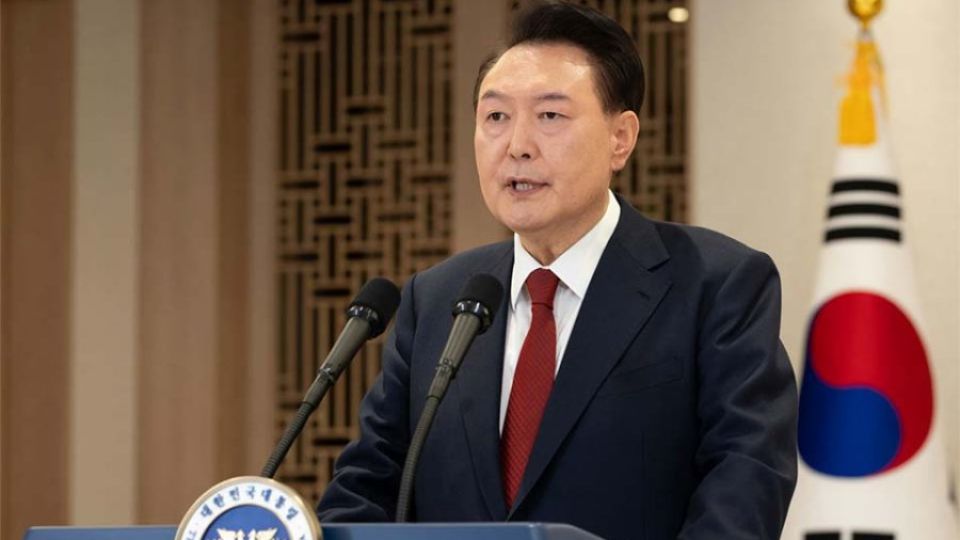January 15, 2025
SEOUL – South Korea has long been lauded as a beacon of democracy and the rule of law in Asia, but recent developments surrounding President Yoon Suk Yeol have placed the country’s democratic foundations under scrutiny.
The global community is observing closely how South Korea navigates these challenges, which could shape its political trajectory and influence other emerging democracies. South Korea’s democracy faces significant tests related to judicial independence, political accountability and the balance of power — tests that must be addressed to maintain the country’s democratic integrity and rule of law.
Yoon’s presidency was marked by ambitious reform agendas, particularly in the realm of prosecutorial oversight and judicial independence. However, critics allege that his administration’s actions often blurred the lines between political authority and legal impartiality.
During his term, controversies arose over high-profile investigations targeting opposition figures, raising concerns about selective justice. Data from 2024 showed that public trust in the judiciary declined nearly 15 percent from the previous year according to a Gallup Korea survey, reflecting growing skepticism about the impartiality of legal institutions.
One of the most contentious moments of Yoon’s presidency came with the short-lived imposition of martial law on Dec. 3, 2024.
This drastic measure was widely criticized as an abuse of executive power and a direct threat to democratic governance. Legal scholars and activists argued that such action invites severe consequences, including impeachment and investigations. Critics called for the Constitutional Court to demonstrate courage and impartiality by ensuring Yoon is held accountable through imprisonment for undermining the democratic order. Such a precedent reinforces the principle that no leader is above the law and helps restore public faith in democratic institutions.
Compounding these issues is the perception of Korea’s hyperpolarized political landscape. Both the conservative and progressive factions have increasingly resorted to legal measures as political tools, fostering a climate of retaliatory politics.
Yoon’s tenure witnessed several instances where opposition figures faced indictments that were later dismissed or deemed politically motivated. This tit-for-tat dynamic not only undermines public trust in the legal system, but also distracts from substantive policy debates. A 2024 report by the Korea Institute of Public Administration highlighted that over 60 percent of South Koreans believe political divisions have negatively impacted the country’s governance, signaling widespread disillusionment with the current state of democracy.
Another critical challenge lies in ensuring accountability for those in positions of power. Yoon himself faced a host of accusations, including allegations of nepotism and misuse of government funds. Although no formal charges were brought against him, these controversies have underscored the need for robust mechanisms to hold leaders accountable.
Transparency International’s 2024 Corruption Perceptions Index ranked South Korea 35th out of 180 countries, a slight improvement from previous years, but still indicative of lingering concerns about political corruption. Addressing these issues requires systemic reforms such as strengthening the independence of anti-corruption agencies and enhancing whistleblower protections.
Beyond internal South Korea dynamics, these challenges have significant global implications. As a nation often held up as a model of democratic progress, South Korea’s struggles with political accountability and judicial independence serve as a cautionary tale for other democracies.
The international community, including allies such as the US and the European Union, has emphasized the importance of upholding democratic principles in South Korea to maintain its credibility on the global stage. Failure to address these challenges risks not only eroding domestic trust, but also diminishing South Korea’s soft power as a leader in democratic governance.
However, it is important to note that South Korea also has several strengths that can help it overcome these challenges. Its vibrant international civil society and active media play crucial roles that can hold leaders accountable and foster public discourse.
In recent years, public demonstrations and investigative journalism have successfully brought attention to abuses of power, leading to significant reforms. For example, the 2024 introduction of a citizen-led oversight committee for prosecutorial investigations is a step forward in enhancing transparency and reducing political interference.
Moreover, Korea’s democratic resilience has been demonstrated through its peaceful power transitions and robust electoral processes. The parliamentary elections in 2024, despite concerns over political polarization, recorded one of the highest voter turnouts in recent history, reflecting the people’s enduring commitment to democratic participation. This engagement underscores the potential for grassroots movements and civic activism to drive meaningful change in the country’s political landscape.
In conclusion, South Korea’s democracy stands at a crossroads with President Yoon Suk Yeol, illuminating both its strengths and vulnerabilities.
The challenges related to judicial independence, political accountability and polarization threaten to undermine the rule of law and public trust in democratic institutions. The short-lived declaration of martial law by Yoon stands as a stark reminder that the potential for executive overreach demands bold action from institutions like the Constitutional Court to ensure justice. However, the country’s vibrant society, engaged electorate and international partnerships provide pathways to address these issues and strengthen its democratic foundations.
South Korea’s drive to confront these tests will not only define its future, but also serve as a vital lesson to democracies worldwide. By addressing systemic flaws and embracing reforms, South Korea can reaffirm its status as a resilient democracy capable of withstanding internal and external pressures.
Simon Hutagalung is a retired Indonesian Foreign Ministry diplomat. He received a master’s degree in political science and comparative politics from the City University of New York. The views expressed here are the writer’s own. — Ed.


